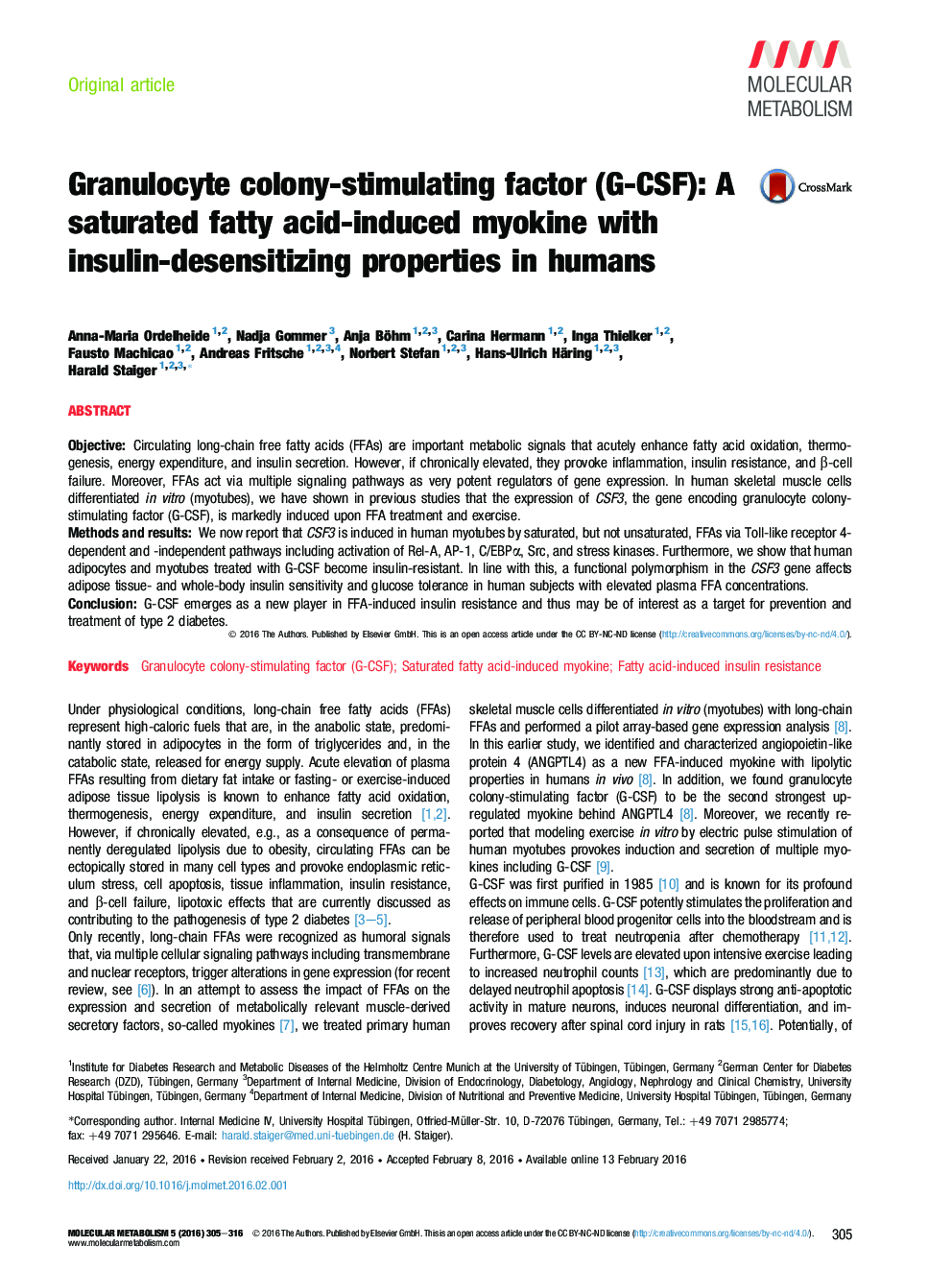| Article ID | Journal | Published Year | Pages | File Type |
|---|---|---|---|---|
| 3001557 | Molecular Metabolism | 2016 | 12 Pages |
•CSF3, the gene encoding G-CSF, is induced in human myotubes by saturated, but not unsaturated, FFAs.•CSF3 expression is induced via Toll-like receptor 4-dependent and -independent pathways.•Human adipocytes and myotubes treated with G-CSF become insulin-resistant.•A CSF3 SNP affects insulin sensitivity and glucose tolerance in human subjects with elevated plasma FFA concentrations.•G-CSF emerges as a new player in FFA-induced insulin resistance.
ObjectiveCirculating long-chain free fatty acids (FFAs) are important metabolic signals that acutely enhance fatty acid oxidation, thermogenesis, energy expenditure, and insulin secretion. However, if chronically elevated, they provoke inflammation, insulin resistance, and β-cell failure. Moreover, FFAs act via multiple signaling pathways as very potent regulators of gene expression. In human skeletal muscle cells differentiated in vitro (myotubes), we have shown in previous studies that the expression of CSF3, the gene encoding granulocyte colony-stimulating factor (G-CSF), is markedly induced upon FFA treatment and exercise.Methods and resultsWe now report that CSF3 is induced in human myotubes by saturated, but not unsaturated, FFAs via Toll-like receptor 4-dependent and -independent pathways including activation of Rel-A, AP-1, C/EBPα, Src, and stress kinases. Furthermore, we show that human adipocytes and myotubes treated with G-CSF become insulin-resistant. In line with this, a functional polymorphism in the CSF3 gene affects adipose tissue- and whole-body insulin sensitivity and glucose tolerance in human subjects with elevated plasma FFA concentrations.ConclusionG-CSF emerges as a new player in FFA-induced insulin resistance and thus may be of interest as a target for prevention and treatment of type 2 diabetes.
